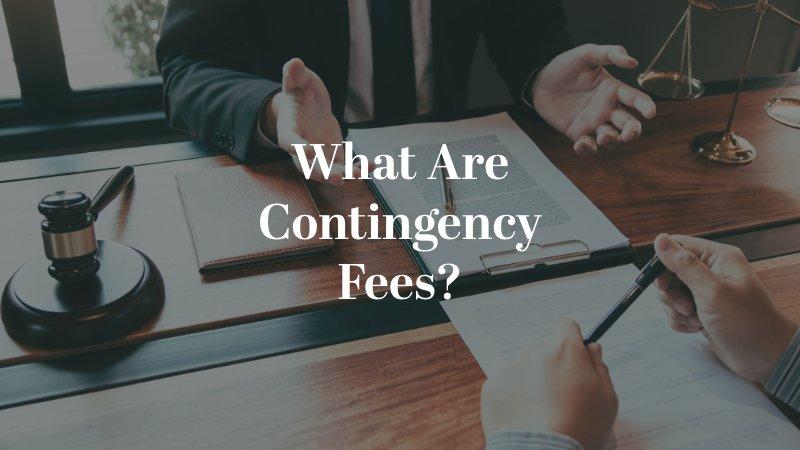When someone suffers a personal injury, they often face unexpected expenses, including medical bills, lost income, and car repairs. They may worry about being able to also afford paying a lawyer to pursue compensation for these and other losses. However, with contingency fee arrangements, they can retain a lawyer’s legal services now while they need them without having to pay for them until later.
Here is what you need to know about contingency fees and how they work.

Basics of a Contingency Fee
A contingency fee is a fee that is conditioned on a particular outcome. In personal injury cases with a contingency fee arrangement in place, the lawyer only gets paid for their attorney’s fees if they successfully recover compensation in the case, either through a settlement or a verdict.
Rather than being paid on an hourly basis like most legal contracts are arranged, their payment is conditioned on a successful outcome of the case. They receive a percentage of the financial recovery they achieve.
Imagine you were in a car accident. Your lawyer is able to secure an insurance settlement of $100,000. Your lawyer charges a one-third contingency fee. Your lawyer receives one-third of the proceeds or $33,333 in this case, and you receive the other two-thirds or $66,667. Legal costs may also come into play, but we discuss those later.
Benefits of Contingency Fee Arrangements
Contingency fee arrangements benefit clients for various reasons, including:
- Access to justice: Contingency fee arrangements enable accident victims to retain legal services immediately and access justice without an upfront financial burden.
- Risk shifting: Personal injury victims can retain a lawyer’s services without having to pay anything upfront. This shifts the risk to the lawyer, who may wind up doing work without pay.
- Financial security: Clients have peace of mind knowing that they are not taking on substantial financial risk. This allows them to focus on their recovery.
Attorney Fees vs. Legal Costs
Attorney fees pay for the time the lawyer has spent on a case. Legal costs are other costs associated with the case, such as:
- Medical record request fees
- Accident report fees
- Expert witness fees
- Postage, copying, and courier fees
- Court filing fees
- Administrative costs
- Litigation expenses
These legal costs are treated differently from attorney fees. Different attorneys handle these costs differently. Some deduct these costs before calculating the contingency fee, while others deduct them after the fee is calculated. Sometimes, clients may be responsible for these costs even if the attorney doesn’t win the case.
Talk to a lawyer about how these legal costs are handled.
Call Us Today to Learn More About Our Contingency Fee Arrangements
At Dulin McQuinn Young, we don’t believe that legal services should only be available to those who can afford them right now.
When we take on a personal injury case, we have the confidence that we can win and be paid for our services. We can discuss our contingency fee agreements during your free, no-obligation case review. Call us today at (306) 246-1111 or contact us online to get started.